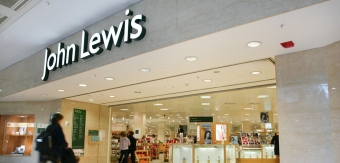McKinsey Health Institute’s ‘Adding years to life and life to years’ report estimates that over the next decade humanity could add as many as 45 billion extra years of higher-quality life – roughly six years per person on average – by adopting a holistic approach towards health and reorienting aspects of public policy and the economy.
In recent years, the focus on mental health, social wellness, and inclusion has transformed the way we view wellness. No longer is it a question of ‘what is wrong with people?’, but rather ‘what matters to people?’. The concept of health is shifting beyond ‘health as the absence of disease’ or being just physically fit, to also living a fulfilling life both mentally and socially.
However, there are still significant gaps within health and wellness that should be filled to improve accessibility and affordability of products while ensuring there is an adequate awareness of how to proactively manage health more holistically. This requires a systemic approach that involves regulators and the public sector as much as private companies and individuals.
Some steps have been taken to facilitate this shift. For example, the traffic light system on food packaging introduced almost 10 years ago by the UK government shows the nutritional value of food and helps consumers make more conscious choices when they shop for groceries.
Recently, tighter rules around HFSS promotions were introduced across retail stores and online. Beyond these regulations, brands can play a significant role and use their impact to contribute to a wellness shift in multiple ways. In this piece, we focus on a couple of dimensions brands can leverage to facilitate this.
Brand innovation and product development

New product development, or reformulation of existing product recipes with nutritional ingredients, provides brands with a route to ensure consumers can access healthier options that support changing attitudes around wellbeing. Brands should be assessing their product ranges and asking whether they live up to heightened health standards as much as brand authenticity and consumers’ expectations.
McDonald’s set a good example in this area. The brand has made significant efforts in the past decade to become healthier by making product changes as well as policy updates while keeping its essence as a fun, relatable and easygoing brand, offering meal solutions for all.
Healthy doughnut start-up Urban Legend, with its promise ‘never high in fat, never high in sugar, never high in calories’, is turning the heat up on other key players within the sweet industry.
Despite it being a young new kid on the block within a well-established market, the brand is quickly gaining popularity – and space in major national retailers including Tesco – because it doesn’t compromise on consumers’ expectations about taste and indulgence, which remain the main drivers of choice in the category.
The impact of brand communications and partnerships

Communication and storytelling help brands position themselves and create narratives able to influence consumer behaviour through the way information is relayed and experienced.
Omnichannel marketing – from packaging to store, to social and OOH adverts – presents a canvas for creative ways for brands to help people embrace a more holistic view of health while enhancing customer experience.
Whole Foods installed kiosks in their stores to display product information, nutritional facts, and recipe ideas – customers can scan a product’s barcode and access transparent information about ingredients alongside a snapshot of product benefits as well as practical inspiration to introduce healthy eating habits in their lives.
Through partnerships, brands have the opportunity to amplify their efforts to improve the health and wellness experience across different stages of life. Last year, Boots partnered with GenM – which calls itself ‘the menopause partner for brands’ – by introducing a symbol on the products that can help with menopause symptoms affecting women’s physical, mental and spiritual health.
The collaboration aimed to create a first-of-its-kind movement to normalise and ease the experience of menopause, while introducing forward-thinking brands to this new, commercially attractive market in a responsible, ethical way.
Why should brands lean into a proactive and holistic approach to health?

Brands are ingrained into our lives – they influence behaviour and help to create new ways of living. By embracing a proactive and holistic approach to health and wellness, brands can strengthen trust and loyalty, which converts into financial resilience while contributing to the biggest and most impactful switch in the history of human health.
And, paraphrasing McKinsey; healthier and happier lives at physical, mental and social levels create a positive ripple effect because when people live longer and better, they lead more productive and enjoyable lives, which in turn enables social development and spurs economic growth.

By Michela Graci, Strategy Partner at Coley Porter Bell






